Allergies are a common health problem that affect millions of people in the United States and
worldwide. They occur when one’s immune system overreacts to a substance, such as pollen,
dust mites, or pet dander. Allergies can cause a variety of symptoms ranging from sneezing,
runny nose, itchy eyes, and irritation of the throat. However, many over-the-counter (OTC)
allergy medications can help to manage these symptoms. In this blog post, we’ll discuss some of
the most common OTC allergy medications and the ways in which they work!
Antihistamines
Antihistamines are the most commonly used OTC allergy medications. They work by blocking
the release of histamine, a chemical that the body produces in response to an allergen.
Histamine is responsible for many allergy symptoms, including itching, sneezing, and runny
nose. Antihistamines can relieve these symptoms by preventing the binding of histamine to its
receptors in the body.
There are two main types of antihistamines: first-generation and second-generation. First-
generation antihistamines, such as diphenhydramine (Benadryl) and chlorpheniramine (Chlor-
Trimeton), may impair mental alertness and tend to cause drowsiness. Second-generation
antihistamines, such as loratadine (Claritin), cetirizine (Zyrtec), and fexofenadine (Allegra), are
less likely to cause drowsiness and are therefore preferred for use during the daytime.
Decongestants
Decongestants are another type of OTC allergy medication. They work by shrinking swollen
nasal passages and reducing congestion. Decongestants can be taken via multiple routes –
orally or used as nasal sprays. Common oral decongestants include pseudoephedrine (Sudafed)
and phenylephrine (Sudafed PE), whereas common nasal sprays include phenylephrine (Neo-
Synephrine) and oxymetazoline (Afrin).
Decongestants are helpful for reducing congestion; however, they should not be used for more
than a few days in a row unless directed by a medical provider. Prolonged use can cause
rebound congestion, a condition in which the nasal passages become even more congested
once the drug is stopped.
Nasal Corticosteroids
Nasal corticosteroids are a type of nasal spray that can reduce inflammation in the nasal
passages. They work by blocking the production of inflammatory substances that cause allergy
symptoms. Common nasal corticosteroids include fluticasone (Flonase), mometasone
(Nasonex), and triamcinolone (Nasacort).
Nasal corticosteroids are often recommended for people with moderate to severe allergy
symptoms. They can take a few days to start working, but they can provide long-lasting relief.
Similar to decongestants, nasal corticosteroids should not be used for more than a few days in a
row unless under medical supervision.
Summary
OTC allergy medications can be a tool in your arsenal for managing troublesome allergy
symptoms. Antihistamines can reduce itching, sneezing, and runny nose, while decongestants
work primarily on congestion. Nasal corticosteroids can provide long-lasting relief by relieving
inflammation in the nasal passages. If you have allergies, talk to your pharmacist, primary care
provider, or a member of our PrimeCARE team about which OTC medications may be best for
you. Remember to always follow the package insert and instructions listed on the medication
packaging carefully and consult your healthcare provider if your symptoms persist or worsen.

Charlie Wright, Pharm.D., BCPS Assistant Professor of Pharmacy Practice Harding University College of Pharmacy





